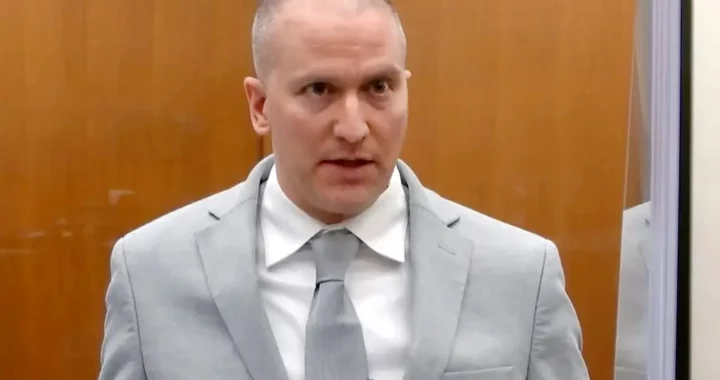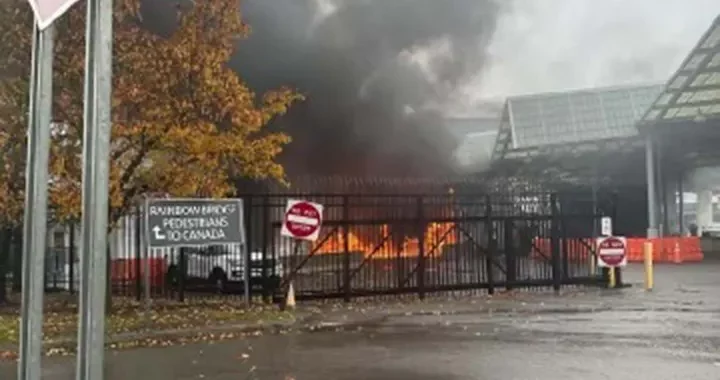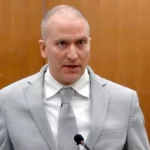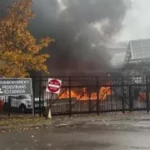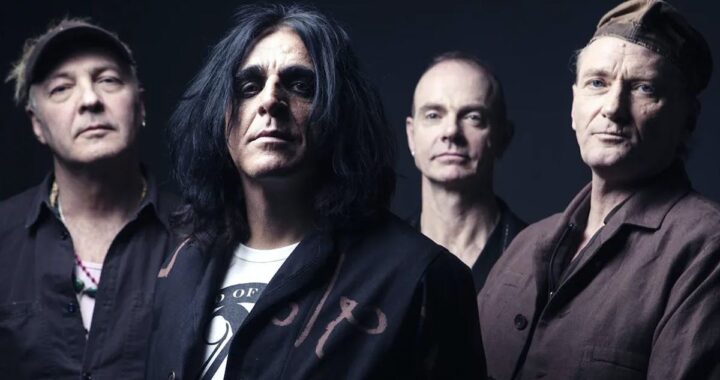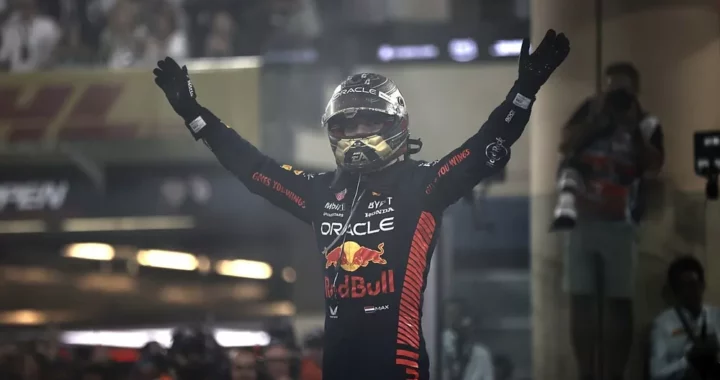Elijah McClain’s Tragic Death and Cases Against Police and Paramedics
Another Denver-area police officer, who used a neck hold on Elijah McClain before he was administered ketamine by paramedics and subsequently passed away, has been acquitted by a jury.

An Emotional Verdict: Acquittal in Elijah McClain’s Case
In a decision that has left many shocked and disheartened, a Denver-area police officer, Officer Nathan Woodyard, was acquitted of manslaughter in the case of Elijah McClain. This verdict came after a tumultuous trial that featured compelling testimony about the events leading up to McClain’s tragic death in 2019. The acquittal has sparked a fresh wave of conversations about justice, the use of force, and the accountability of first responders.
Elijah McClain’s death has been a focal point of nationwide protests and discussions surrounding police brutality and the need for reform. It was in the wake of the tragic killings of George Floyd, Breonna Taylor, and others that the charges were filed against the first responders involved in McClain’s case. The first trial, which ended in a split verdict, saw one Aurora officer found guilty, while another was acquitted. Now, the spotlight is on the upcoming trial of paramedics Jeremy Cooper and Lt. Peter Cichuniec from the Aurora fire department, both of whom have pleaded not guilty.
This article aims to provide you with a deeper understanding of the trials, the circumstances surrounding McClain’s death, and the challenges in holding first responders accountable.
The Genesis of Charges
Local prosecutors initially opted not to bring charges in Elijah McClain’s death due to the initial autopsy’s inability to determine the exact cause of his demise. However, after a groundswell of protests following the death of George Floyd, Democratic Governor Jared Polis ordered the state attorney general to re-investigate the case. The subsequent grand jury indictment in 2021 charged three officers and two paramedics. Dr. Stephen Cina, the forensic pathologist who conducted McClain’s autopsy, adjusted his findings in 2021, pinning the blame on the powerful sedative ketamine after reviewing body camera footage.
The Fateful Encounter
Elijah McClain’s tragic encounter with law enforcement began when Officer Nathan Woodyard, the acquitted officer, was the first to approach him. The catalyst for this interaction was a 911 call from a 17-year-old who described McClain, a young Black man, as appearing “sketchy” while he walked home, wearing earbuds and listening to music. McClain’s actions, which included waving his arms and wearing a runner’s mask and jacket despite warm weather, led to a confrontation with the police.
The situation quickly escalated as McClain, taken by surprise, attempted to continue on his way. Officer Randy Roedema claimed that McClain had reached for one of the officers’ guns, leading Woodyard to put him in a neck hold that compressed his carotid artery, temporarily rendering him unconscious. Assistant Attorney General Ann Joyce argued that McClain didn’t attempt to grab a gun, while the defense attorney, Megan Downing, contended that Woodyard had to react swiftly based on what he heard.
A paramedic later administered an overdose of ketamine to McClain, who tragically passed away three days afterward.
The Acquittal of the Officers
Officer Nathan Woodyard faced charges of manslaughter and criminally negligent homicide. Prosecutors argued that his actions, including the neck hold, contributed to Elijah McClain’s death. However, the defense successfully persuaded the jury that Officer Woodyard wasn’t present during crucial moments later in the encounter. Woodyard testified that he put McClain in the neck hold because he feared for his life, citing McClain’s statement, “I intend to take my power back,” and another officer’s remark, “He just grabbed your gun, dude.”
Another officer, Rosenblatt, who faced charges of manslaughter, criminally negligent homicide, and assault, was also acquitted. During the trial, his attorney highlighted that Rosenblatt wasn’t near McClain when Roedema and another officer held him down while paramedics administered ketamine.
Roedema, the most senior of the three officers, had a different fate. He was convicted in October of negligent homicide and third-degree assault and was subsequently terminated from the Aurora police department. He now faces the possibility of a sentence ranging from probation to prison time.
Elijah McClain’s mother, Sheneen McClain, left the courthouse on the day of the verdict with a raised fist, symbolizing her dissatisfaction with the outcome. She expressed her disappointment but added that she wasn’t surprised. “I don’t have faith in this system at all,” she stated. “Because it lets us down – not just people of color, it lets down everybody. They don’t do the right thing.”
The Complex Path to Accountability
The Elijah McClain case highlights the difficulties in holding police officers accountable for their actions through the legal system. This challenge arises from a combination of factors, including legal standards, public perception, and the intricacies of each case.
In the eyes of the law, police officers are granted the authority to use force if they can provide a reasonable explanation for their actions. This legal framework often leads to situations where officers can justify their use of force, particularly if their claim of fearing for their lives remains uncontradicted by other evidence. It is those crucial seconds, where the balance between perceived threat and the need for force is determined, that often lead to acquittals in cases involving the police.
Additionally, the jury selection process in such cases can be influenced by societal factors. A generally favorable view of the police is held by many potential jurors, making it difficult to secure convictions. This can lead to a reluctance to question the actions of officers, even when those actions result in a loss of life.
What Lies Ahead for the Paramedics
Throughout the trials of the officers involved in Elijah McClain’s case, the actions of paramedics Cooper and Cichuniec have been a recurring theme. They face charges of manslaughter, negligent homicide, and several counts of assault, all classified as felonies.
Defense attorneys for the officers repeatedly pointed to the ketamine injection as the cause of McClain’s death, rather than their clients’ actions. In Officer Woodyard’s trial, the defense brought in Dr. Nadia Iovettz-Tereshchenko, an emergency room doctor who has also worked for the prosecution in the paramedics’ case. She stated that Cooper and Cichuniec did not follow their training protocols in caring for McClain.
Prosecution experts, on the other hand, argued that the ketamine injection ultimately caused McClain’s death, with the officer’s violent stop of McClain setting off a chain of events that led to and contributed to his demise.
It’s worth noting that it is unusual for medical professionals to be brought to trial for the death of a person in police custody. Paramedics are often required to make quick decisions based on the information provided by the police officers at the scene. These decisions are then used to determine the appropriate course of treatment. This unique dynamic adds complexity to the case and raises questions about the accountability of medical professionals in such situations.
In the wake of the acquittal, the Elijah McClain case remains a focal point for discussions surrounding justice, police reform, and the need for change in how incidents involving the police and paramedics are handled.
Conclusion
The acquittal of Officer Nathan Woodyard in the trial of Elijah McClain’s death serves as a stark reminder of the challenges in holding first responders accountable for their actions. The case has raised critical questions about the use of force, the legal standards applied to law enforcement officers, and the need for reform in the justice system.
Elijah McClain’s story has become a symbol of the broader movement for police reform and accountability. It is a sobering reminder that, while progress has been made in addressing issues of police brutality, there is still much work to be done to ensure that justice is served in cases like his. The upcoming trial of the paramedics involved in this case will undoubtedly continue to draw attention and fuel discussions about the need for change in the criminal justice system.
By: M Z Hossain, Editor Sky Buzz Feed

